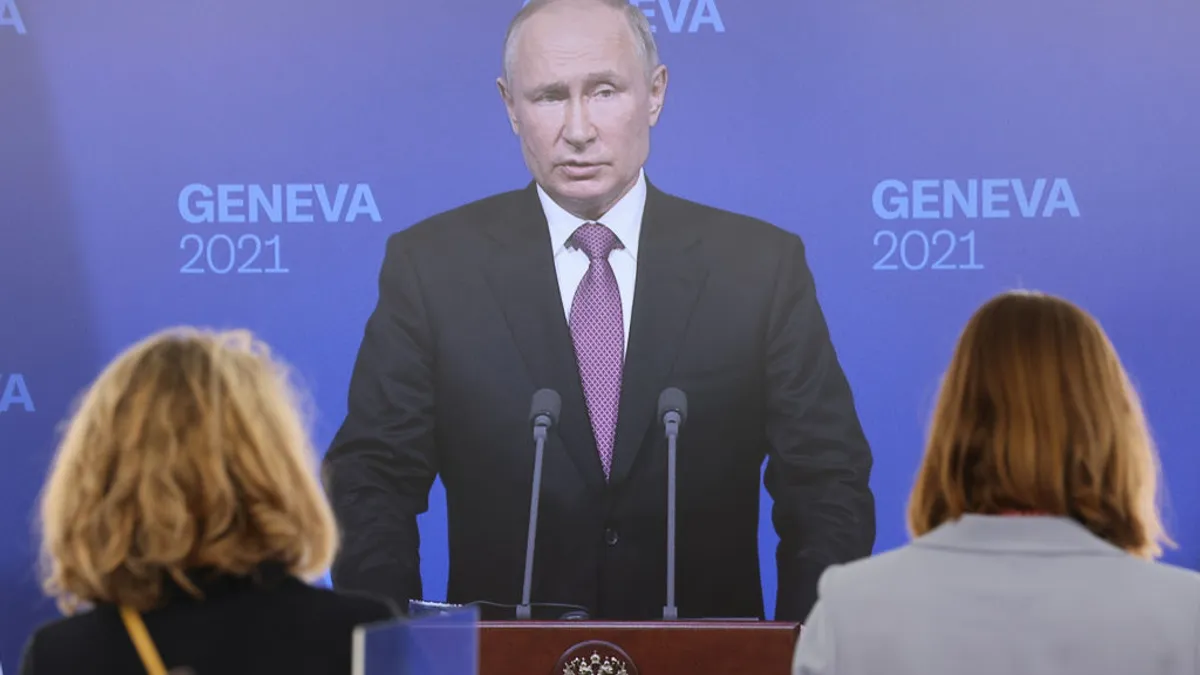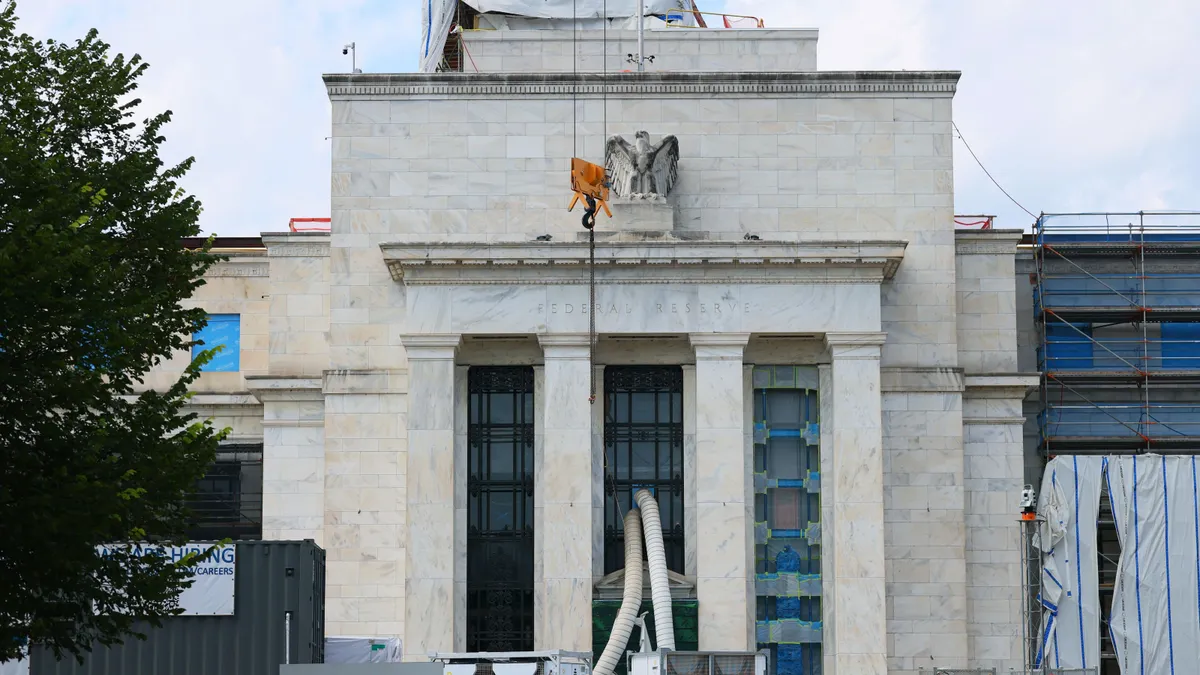Western politicians first raised the possibility of kicking Russia out of the Swift international payments network when Vladimir Putin invaded Ukraine’s Crimea region in 2014. Now that Putin is threatening a second invasion, some foreign policy experts argue such harsh sanctions would be counterproductive.
To be sure, Russia’s economy would take a hit if it were expelled from Swift. Also known as the Society for Worldwide Interbank Financial Telecommunication, Swift is used to make cross-border payments across 200 countries. Nonetheless, Russia has taken steps since 2014 that would cushion any economic blow resulting from its expulsion.
For example, Moscow has built a Russia-based Swift rival called the System for Transfer of Financial Messages, which isn’t subject to U.S. sanctions and could serve as a substitute for the network. It also has built up its foreign currency reserves.
"Even if Russian banks were removed from Swift, companies and financial institutions in the West — especially those in Europe that rely on Russian gas — would need to find ways of working around any Swift restrictions," according to a Jan. 4 story in Foreign Affairs. "Businesses and other purchasers of gas that would normally rely on Swift messages between their financial institutions and those in Russia would merely revert to pre-1973 modes of communication: telex and telephone calls could process the very same requests for financial transactions, albeit more slowly and less securely."
Moreover, the Kremlin might impose "countermeasures" that could include "criminalizing compliance with foreign sanctions in Russia, so that companies or individuals who played by the new rules could find themselves facing prosecution in Russian courts," the Foreign Affairs piece said.
Swift takes neutral position
Swift is a member-owned corporation based in Belgium controlled by its 3,500 financial institution shareholders scattered across the world. It's overseen by the G-10 central banks, plus the European Central Bank, with the National Bank of Belgium as lead overseer, according to its website.
Swift says it was founded to provide secure financial messaging services worldwide and to replace the antiquated telex teleprinter network widely used by businesses for two-way communication in the mid-20th century.
In response to a request for comment on what role Swift might play in sanctions, Swift Spokesperson Imaan Kara replied via email:
Swift "is a neutral global cooperative set up and operated for the collective benefit of its community of more than 11,000 institutions in 200 countries. Any decision to impose sanctions on countries or individual entities rests solely with the competent government bodies and applicable legislators."
Kara also referred to background on the cooperative's website, which said this: "As far as financial sanctions are concerned, the focus of SWIFT is to help its users in meeting their responsibilities to comply with national and international regulations."
Russia's economic ties to the rest of Europe
Russia’s economy relies on the oil and gas sector, which accounts for as much as 60% of the country’s exports and is denominated in U.S. dollars. Meanwhile, countries in western Europe depend on Russia to meet their energy needs, complicating efforts by the U.S. to hold it accountable for its actions.
"Until now America has aimed its financial firepower at small or isolated countries such as Cuba, Iran and Myanmar," according to The Economist. "Russia is twice the combined size of any economy America has ever embargoed. Any disruption in Russia would spill over to the countries that have business dealings with it. It is the EU's fifth-largest trading partner, for instance. And European banks have $56 (billion worth) of claims on Russian residents." Retaliation by Russia is also a risk, the magazine noted.
Iran is a cautionary tale for Russia as its oil-dependent economy has cratered since its banks were disconnected from Swift in 2018. According to Maria Shagina, a postdoctoral fellow at the Center for Eastern European Studies at the University of Zurich, Iran has lost almost half of its oil export revenue and 30% of foreign trade because it can’t access Swift.
"The impact on the Russian economy would be equally devastating, particularly in the short term," Shagina wrote in a post on the website of the Carnegie Moscow Center, a think tank in Russia that is part of the network that includes the U.S.-based Carnegie Endowment for International Peace. "The cutoff would terminate all international transactions, trigger currency volatility, and cause massive capital outflows."
For U.S. financial institutions, jettisoning Russia from Swift would be muted because most do little business in the country, according to Erika Baumann, who is director of commercial banking and payments at the research firm Aite-Novarica Group.
"Their clients are not sending money to Russia and their investment portfolios do not include Russian securities," Baumann wrote in a Jan. 4 email.
Still, for a minority that transact with Russia, access through Swift could be impaired. "Cutting off this access would impact individual citizens trying to send or receive funds to citizens in Russia as well as businesses," Baumann said.





















